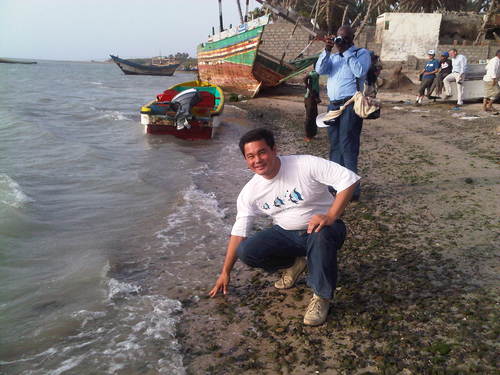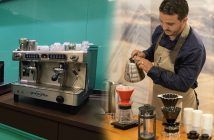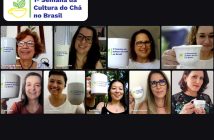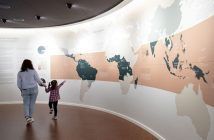The courses are based on content and its teachers of the highest standard
According to the astrologer Barbara Abramo, 2018 will present Uranus in Taurus, what is great for the world cuisine, a year for experiencing new tastes and flavors. Excellent to deepen in the studies and propagation of the teachings. Did Ensei Neto have his astral map done by her?
It is possible, because 2018 starts with everything in his favor. In a franchise format, Ensei is opening with another partner, two schools, one in Recife and the other in Porto Alegre.
His franchise in São Paulo, is managed by himself. The project is called 20/2 (twenty slash two), a number linked to the human’s ability to see, which is small compared to other animals, such as the eagle for example, which has a super accurate view of 20 / 2.
“The school aims to be comprehensive in terms of content, which will be open and dynamic and also will be highly specialized. “It is not only a coffee school, it has a much more comprehensive approach”.
“I believe in the transformation of society through sensory education”, he says. The courses are taught by specialists from various fields such as Carla Sauaressig teas specialist, Sônia Yamane, sake specialist; Maurício Maia, cachaça specialist; Claudius Schutz, chocolate specialist, and so on. “We will also approach the cheese universe, but we have not yet defined who will teach the course because there are many extremely high-quality specialists in this field”, he says. In addition to the training aimed at professionals, there will be a series of courses and lectures aimed at the consumer, with different material and measures.
The first will be coffee, of course, because they test the model that is implemented.
As it is a franchise, a school in Recife will be called Fábrica de Conhecimento, a mix of coffee shop and roasting workshop, which in 2018 will inaugurate the school, located on the beach of Boa Viagem, at first, because the headquarters is not available yet. “Its owners are people who have been working with me for a long time and are aligned with my purposes, says Ensei.
This initiative came from a research where the origins of the students from the courses taught at ABIC, in São Paulo, were identified. “We noticed that Recife and Porto Alegre would be great places to start a school, as many students who come from states that are a long way from São Paulo, to attend the basic, Level 1 courses. Our branches in Recife and Porto Alegre will suffice the basic levels needs. All the advanced courses will be held in São Paulo”, he explains.
One of the great advantages is that, due this format, it is much more economically feasible to our students. Those who live in the northern states of Brazil can perfectly take the course in Recife. Porto Alegre also has a staff that is very interested in specialty coffees. “To give you a sense, half of the students in the last course taught in São Paulo were from Santa Catarina”, he says. Not to mention the possibility of attracting students from other neighboring countries and Asia.
Ensei believes that it is easier to make the market more dynamic, faster for its development. The 20/2 is one of the most important projects of my life, “It integrates my knowledge and to love to teach”, he says.
Ensei promises that the school will have the most up-to-date content possible. “I do not repeat what is taught in a course, each one has a new different proposition, I’ve estimated that 15% to 20% of the content will change every time a new course is launched, everything changes, you have more content, new exercises, new evaluation or understanding perspectives”, he says.
In São Paulo, a school, which will be inaugurated in the first quarter, will have its own headquarters and more flexible schedules, including evening classes. The new location will be close to the subway, with excellent transport logistics”, he says.
Internationalization
The second step of the 20/2 project is making the school international. Ensei wants to take the 20/2 to neighboring countries – pertaining to Mercosur – and even to the Eastern countries. No wonder. Due to all his knowledge and years of working for the SCAA’s technical standards committee, many of his current students are Japanese, Korean, and Taiwanese. Some come to Brazil with interpreters just to take the course. “Our courses are unique. No one takes science more seriously than we do”, he adds.
The professional explains his course are entirely based on science. I came from the third school, we consider physics, chemistry and mathematics concepts in our studies. “There is no way to go against universal knowledge. It is the only course in which as people leave with their doubts answered”, he says.
Just to contextualize, the first classical roasting school, works only with time and temperature parameters. The second school, known as Nordic School, created almost 20 years ago, is the light roast school. And that is followed by the people from Seattle. “It’s composed by those people who were either going to rock in the garages or went to roast coffee, due to the cold there was not many things to do to spend their time”, he jokes. The third school is based on science, it is the one that I teach. “Every school has its beliefs”, he says.
“The Nordic roast is the one used by the hipsters, those guys who wear woodcutter clothes, are all tattooed, wear a cap. Without being pretentious, at the last Barista World Championship held in Seoul last November, the top three baristas did not follow this style, he says. “It’s not the barista’s appearance that makes a coffee better or worse”, he taunts.
Roasting Software
Ensei also says that this project will leverage other actions, still confidential. But one of them is the coffee roaster support app. “We’re already trying the beta version and the objective is that anyone interested can download it from Apple and Android app stores for free. It will be an instrument to help the professional in decision making. “Our program will not will not stir the roaster machine. You will connect the machine, and the app will complement the machine’s data. The only difference is that it will help to show which roasting point the machine has achieved. So, the person can make the decision on what to do. The program summarizes all the theory we are teaching in the courses”, explains Ensei.
“Recently, we took the app to perform a test in Ceará. A lady, who was doing our course, was afraid and said: – “Wow, Will I be able to roast? This is very difficult…” And we showed that it was not complicated, we showed how it worked and she understood everything. At the time of making the last roast, she knew how to describe exactly what she was doing, made the right decisions in an intuitive way and it was the best roast of all”, he says
What I mean is that behind the calculations that are really very sophisticated, we translate them into an intuitive language. After all, that is our goal”, he adds.
According to Ensei, the financial return on the software will come from the knowledge development and dissemination. “Those who learn will want to know more. Education is the answer!”, he says.
“This project was based on our work philosophy. I have always considered that we have to add, none of us owns the truth and the knowledge development is an everlasting process. Unlike the laws of nature, they do not change, what changes is the way of interpreting those laws. And this project also assists in cooking in general, not only in the coffee, because it changes the perspective of the people in relation to the kitchen. We really believe in this project.
Who is Ensei Neto
Ensei Neto (named after his grandfather) has many sides. He is from São Paulo, from Tatuapé neighborhood, son of niseis, his grandparents came from Okinawa, Japan and arrived in Brazil during the second (father’s family) and third immigration waves (mother’s family). The father was one of the first doctors in the Japanese colony settled in São Paulo, with specialization in gynecology and, later, geriatrics. His mother was a teacher. His two brothers followed his father’s careers. “I literally ran away from medicine, I was not into it”, he says.
His education was quite western, especially by the standards of the time, since the Japanese colony was still closed. Curiously, Ensei studied at the Spanish school, Santo Agostinho, where he learned Spanish fluently because of the eight years he spent there.
“Exceptionally, I married a Japanese woman, it was the first Japanese descent I had. My brothers have married Brazilian women”, he smiles.
He graduated as a musician first, I did study piano, arrangement and composition, in the famous conservatory Guiomar Novaes, and did a post-graduate course in the Instituto do Planalto, in São Bernardo do Campo.
He also learned to play guitar and transverse flute, since it was mandatory to master a wind instrument and a string instrument to make the arrangements. The fact of having studied composition helped him and still helps a lot, since it makes possible to reason in several ways. “When you compose an arrangement, you can change things, have it your own way, begin to analyze and compose not by the piano score, but how these suits can be played throughout the music”, he explains.

(Ensei at the Port of Moka, Yemen)
His engineer layer
He also holds a degree in chemical engineering with a minor in Food Science and, by luck and merit, he has always worked in leading-edge technology companies. As soon as he graduated, he worked in the cachaças’ universe, later, entered the sake industry, then entered the amino acids segment and from there went to study the aromas, until remaining for a while in the sugars department. “I have always worked on the development of new markets and products. To understand such progress, in some companies we had products that took 10 years to be released and only went outside of Brazil. One of them was a natural thickener made from a tuber that began to be widely used as a product for weight loss and for general health improvement, acting to decrease the fat that the person ingests.
It was a typical tuber that came from the Japanese cuisine, which turns into a jelly. Thus, it absorbs fat. The company’s staff developed a capsule and while it passes through the intestine, it removes the fat and improves health. It was around 1985 and the people called people crazy, they said that there was no fat people in Brazil. These products were patented abroad, and not launched in Brazil”, he recalls.
The coffee
“Coffee came into my life by chance. My father-in-law had already grown a coffee plantation in the Cerrado of Minas Gerais, and he insisted that my wife and I went there to take care of the crops. I said I was not going at all, I’m from São Paulo. Until one day when we went on vacation, I looked at all these plants, fruits and got overwhelmed.
My father-in-law said that if we did not stay, he would sell the land. After much thinking, we started living there. I had to prepare my way out of the company where I worked, a division of the Japanese company Takeda, Japan’s largest pharmaceutical chemistry company.
I arrived on the farm, sat down and cried! I thought: – Damn, what did I do? I was not going to learn how to plant and harvest because this is not you learn immediately, it takes time. The first thing I did was start to understand what the market was like. I went abroad to understand how the market works and there I saw that there were standards and I had to learn them. At that time, I began to taste the coffees, I went after knowledge.
We were making a series of innovations due to the general collapse that happened in Brazil during the Collor Plan. After that, we realized that we would not have money to harvest, and we saw that the only way out was to mechanize everything.
We already started making special coffee, but we did not know it was special, it had no name yet. We started to create a brand, I used the industry experience that I had, we created the brand concept, the well-defined processes, control each part of the farm. At that time, in 1994, we already knew how much the millimeter of water costed”, he concludes.



